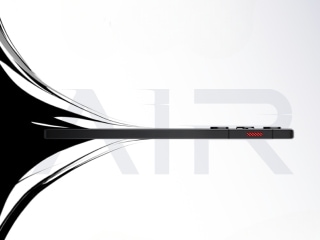Uber Makes UberX Ride-Sharing Service Free in Seoul

Uber started charging a fee last year for the taxi-like service, which matches passengers via a smartphone app with private drivers who do not hold commercial transport licenses.
Prosecutors subsequently indicted Uber's chief executive, Travis Kalanick, as well as its South Korean unit for violating a law prohibiting individuals or firms without proper commercial licenses from providing or facilitating transportation services.
"We want to actively work towards a consensus, and the first step to that process is switching off the fare," Uber's head of north Asia Allen Penn said in a statement.
Uber proposed a new registration system for its drivers in South Korea earlier this month in a bid to operate legally. But the transport ministry rejected the proposal and said it would stop the company offering its services.
Uber has been the subject of similar regulatory ire in countries around the world, even as it expanded into more than 290 cities.
In January, the city of Seoul declared Uber's services illegal and started offering rewards of up to 1 million won ($911) for people who reported private drivers providing transport through the company.
Yang Wan-soon, director of the Seoul city government's taxi and logistics division, told Reuters it is up to the courts to decide whether Uber can operate legally.
"The city also needs to consider whether the free taxi service would disrupt existing market order," Yang said.
© Thomson Reuters 2015
Catch the latest from the Consumer Electronics Show on Gadgets 360, at our CES 2026 hub.
Related Stories
- Samsung Galaxy Unpacked 2025
- ChatGPT
- Redmi Note 14 Pro+
- iPhone 16
- Apple Vision Pro
- Oneplus 12
- OnePlus Nord CE 3 Lite 5G
- iPhone 13
- Xiaomi 14 Pro
- Oppo Find N3
- Tecno Spark Go (2023)
- Realme V30
- Best Phones Under 25000
- Samsung Galaxy S24 Series
- Cryptocurrency
- iQoo 12
- Samsung Galaxy S24 Ultra
- Giottus
- Samsung Galaxy Z Flip 5
- Apple 'Scary Fast'
- Housefull 5
- GoPro Hero 12 Black Review
- Invincible Season 2
- JioGlass
- HD Ready TV
- Laptop Under 50000
- Smartwatch Under 10000
- Latest Mobile Phones
- Compare Phones
- Vivo Y500i
- OnePlus Turbo 6V
- OnePlus Turbo 6
- Itel Zeno 20 Max
- OPPO Reno 15 Pro Mini 5G
- Poco M8 Pro 5G
- Motorola Signature
- Vivo Y50e 5G
- Lenovo Yoga Slim 7x (2025)
- Lenovo Yoga Slim 7a
- Realme Pad 3
- OPPO Pad Air 5
- Xiaomi Watch 5
- Huawei Watch 10th Anniversary Edition
- Acerpure Nitro Z Series 100-inch QLED TV
- Samsung 43 Inch LED Ultra HD (4K) Smart TV (UA43UE81AFULXL)
- Asus ROG Ally
- Nintendo Switch Lite
- Haier 1.6 Ton 5 Star Inverter Split AC (HSU19G-MZAID5BN-INV)
- Haier 1.6 Ton 5 Star Inverter Split AC (HSU19G-MZAIM5BN-INV)

















